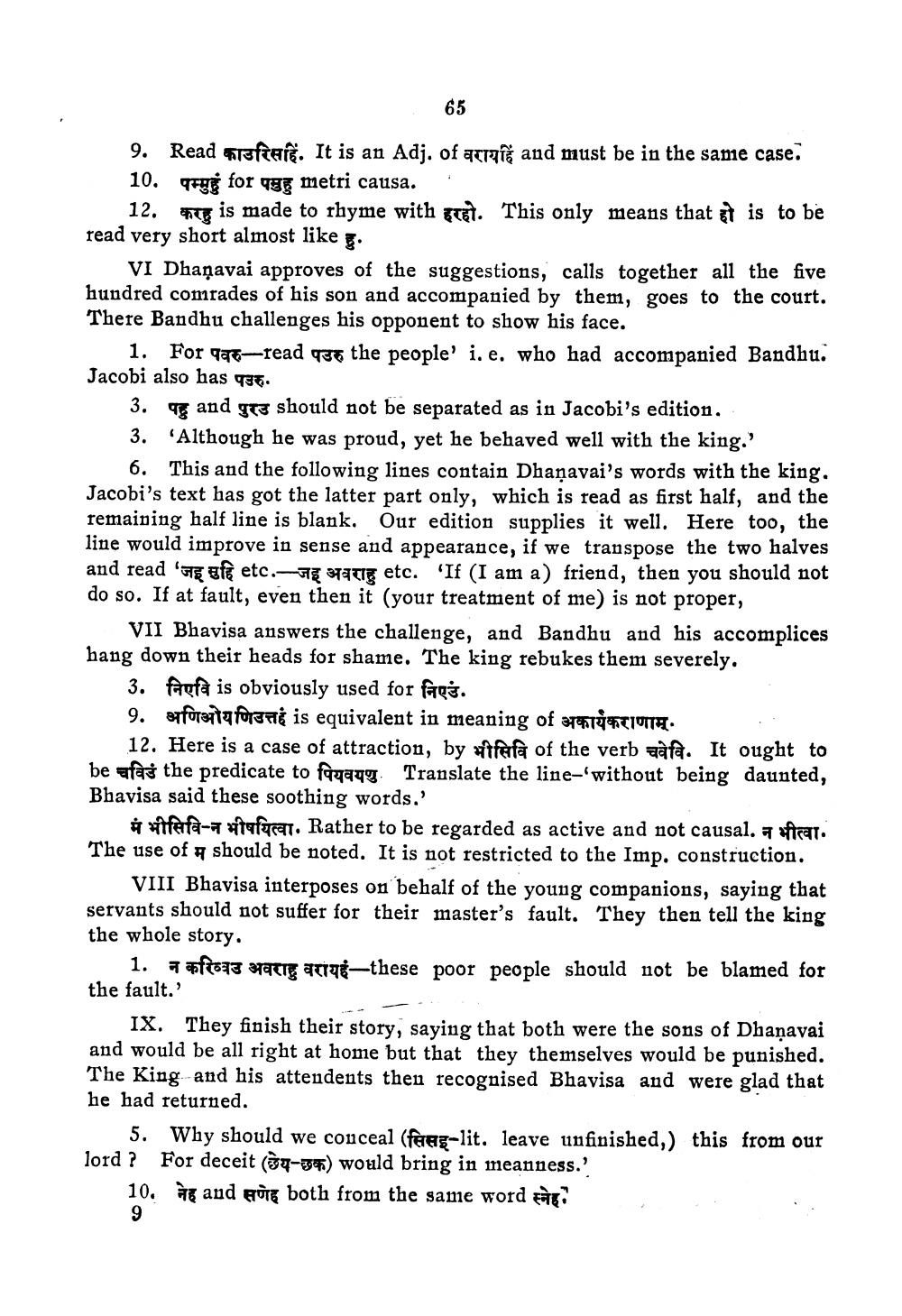________________
65
9. Read FireFTARË. It is an Adj. of acrati and must be in the same case. 10. पम्मुहूं for पमुहु metri causa. .
12. Hy is made to thyme with Tet. This only means that it is to be read very short almost like g.
VI Dhanavai approves of the suggestions, calls together all the five hundred comrades of his son and accompanied by them, goes to the court. There Bandhu challenges his opponent to show his face.
1. For 476-read q7 the people' i. e. who had accompanied Bandhu. Jacobi also has पउरु.
3. and grs should not be separated as in Jacobi's edition, 3. Although he was proud, yet he behaved well with the king.'
6. This and the following lines contain Dhanavai's words with the king. Jacobi's text has got the latter part only, which is read as first half, and the remaining half line is blank. Our edition supplies it well. Here too, the line would improve in sense and appearance, if we transpose the two halves and read 'he efe etc.-Agaty etc. 'If (I am a) friend, then you should not do so. If at fault, even then it (your treatment of me) is not proper,
VII Bhavisa answers the challenge, and Bandhu and his accomplices hang down their heads for shame. The king rebukes them severely,
3. fagfa is obviously used for fags. 9. erforatta forcat is equivalent in meaning of 10%TITTA.
12. Here is a case of attraction, by atfefa of the verb aafa. It ought to be afas the predicate to fogarı Translate the line-'without being daunted, Bhavisa said these soothing words.'
wifef- wtefat. Rather to be regarded as active and not causal. 7 viral. The use of # should be noted. It is not restricted to the Imp. construction.
VIII Bhavisa interposes on behalf of the young companions, saying that servants should not suffer for their master's fault. They then tell the king the whole story.
___1. न करिष्वउ अवराहु वरायई-these poor people should not be blamed for the fault.'
IX. They finish their story, saying that both were the sons of Dhaṇavai and would be all right at home but that they themselves would be punished. The King and his attendents then recognised Bhavisa and were glad that he had returned.
5. Why should we conceal (fez-lit. leave unfinished,) this from our lord ? For deceit (@9-07) would bring in meanness.'
__10. नेह and सणेह both from the same word स्नेह




